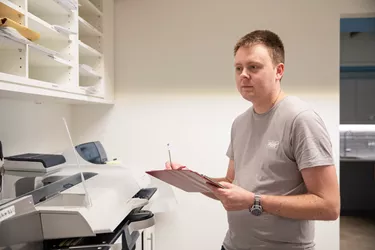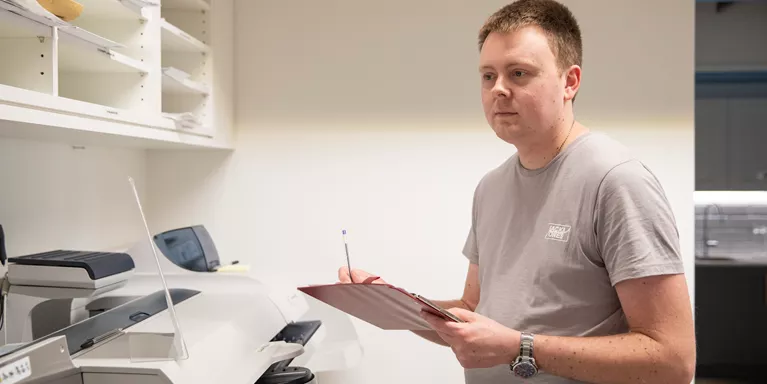Supporting my colleagues to be mentally healthy
Roxanne is the winner of our Wellbeing Lead Award at our Workplace Wellbeing Awards 2019. Here she blogs about how her experience of anxiety and panic disorder inspired her to support the mental health of her colleagues.
Roxanne lives in London and works as a occupational health coach.
I work as an occupational health coach for property developer Mount Anvil. It’s my role to ensure that our employees are physically and mentally healthy. For me this is about raising awareness of mental health with our employees and creating a safe space for everyone to speak out about how they are feeling and if they are struggling.
"There can be a lot of pride and fear about speaking out."
I’ve been doing this role for around two years and it’s been quite a challenge to break down the barriers for our male dominated workforce to feel comfortable talking about mental health, especially to me as a woman. There can be a lot of pride and fear about speaking out, but since I’ve been in this role I’m really seeing our workplace be a much more open place.
I’m proud to say I really feel we are getting somewhere.
I come from what you might call a broken family. My dad left when I was young and had a very difficult relationship with my mum. There was a period after the break up where my dad was threatening and violent towards us.
"I had frequent panic attacks and my anxiety was out of control."
Throughout all of this my mum was amazing, but when I was about nine I developed an all-encompassing fear that she was also going to leave me. I had frequent panic attacks and my anxiety was out of control. I felt like I was living a nightmare in my head of being left alone. Anytime my mum needed to go somewhere I would become hysterical making things really difficult for her. She felt guilty if she needed to leave me, but I only felt safe at home with my mum and grandad.
I was diagnosed with a panic disorder and saw a children’s therapist which was a huge help. I don’t really know what they did, but I remember drawing a lot and as I grew up the panic and fear mostly went away.
In my early twenties I moved to London and after a few years I developed reactive anxiety. I don’t really know what caused it or where it came from, but all the fears from my childhood came back. Some people have a hard time understanding what anxiety is, and it’s often dismissed as not being that bad. My experience is that it’s completely overwhelming. I ended up having EMDR therapy, where I was taken back through difficult events whilst the psychiatrist moved their finger in front of my eyes. It was absolutely fantastic.
"The amazing support I had which helped my recovery really inspired me to take on this role."
The amazing support I had which helped my recovery really inspired me to take on this role. I can use my experience to help people better understand what it’s like to have a mental health problem. Mental health does not discriminate and can affect you whoever you are. That’s what I tell people at work - don’t think you are different because you’re a man, or from a certain background.
Since starting the role I’ve become a trained mental health first aider instructor and I’ve implemented a training programme for site and line managers. We’re on track to train 30% of our managers for the year. The biggest success I’ve felt is when our CEO opened up about his families experience with mental health for the first time at our Time to Change event last year. For the event I made a film where I visited our different sites and asked managers to speak about what mental health means to them. Our CEO told me this is what inspired him to speak out where he’d not felt able to before.
"People feel able to come forward with how they are feeling, and know they will be supported."
There’s been a huge change in the culture at work. People feel able to come forward with how they are feeling, and know they will be supported. Most of all, the dynamics between line managers and employers has hugely improved, the fear that if people speak up there will be repercussions is gone.
We know life happens, and that mental health problems can happen to any of us. We have to adapt our workplace to people’s lives and not the other way around.


Information and support
When you’re living with a mental health problem, or supporting someone who is, having access to the right information - about a condition, treatment options, or practical issues - is vital. Visit our information pages to find out more.
Share your story with others
Blogs and stories can show that people with mental health problems are cared about, understood and listened to. We can use it to challenge the status quo and change attitudes.

















